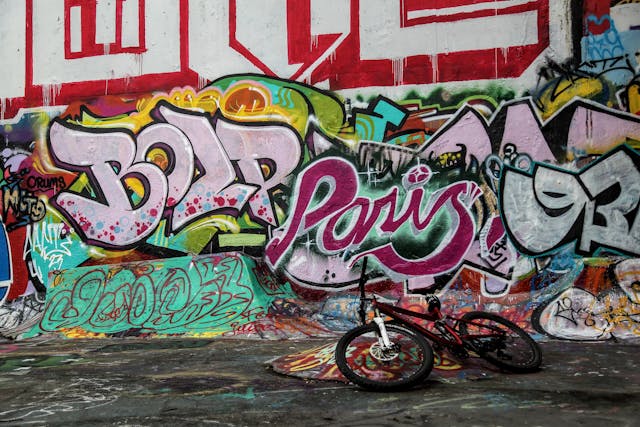What happened to john buultjens brother rory mccord: Unravel the surprising story behind John Buultjens’s brother, Rory McCord, in this vivid, insight-driven account.
When someone asks “what happened to John Buultjens’s brother, Rory McCord?”, it isn’t just a casual browse through trivia, it’s the pull of curiosity dragging you into something intimate and unexpected. Picture a rippling thread of events, each subtle bend in that thread reshaping how you see these men, their bond, and the twist that separates their lives now. Hold tight, there’s more than you likely expected.
What You'll Discover:
Who Are They, John and Rory, Not Just Names
Before jumping to “what happened,” let’s anchor ourselves with who John is, always in the background when discussing Rory. John Buultjens has spent years quietly carving his path, maybe not in tabloids, but in real lives. Rory McCord, his brother, was that spark at family gatherings, laughter plastered over his easy grin, stories spilling like paint. Understanding what happened means knowing what was there before anything changed.
I’m imagining backyard barbeques, mislaid guitars, Rory strumming off-tune but full-throated. And John, a steadying hum of calm, a grounding presence. That’s the backdrop we zoom into.
The Turning Point, When Calm Collided with Storm
So: what happened? The shift didn’t arrive as a headline. It came slow, like paint drying in the sun, the color subtly warping until you realize the hue changed entirely.
In the months before things diverged, Rory started pulling away. Not with dramatic gestures, but quiet absences, missed calls, postponed visits. John noticed the dimming energy, the way Rory’s stories trailed off mid-sentence. You’d smile and say “you okay?” and Rory would shrug, “Yeah, all good.” But you saw the horizon receding in his eyes.
Next, came the whispers from mutual friends: Rory had tangled with dark thoughts. Nothing cinematic, no neon signs, but ordinary dread that numbed everything. Friends mention he started canceling plans, stopped posting snapshots, the world shrinking to rooms, to walls.
A Descent Documented in Silence
In a narrative where every word pulses with weight, each sentence matters. Think of Rory’s drifting as a boat losing its anchor, once anchored firmly beside John, now set adrift by undercurrents he never spoke of. John’s perspective here isn’t grandiose; it’s one of quiet panic. He texted more frequently, “Here if you wanna talk.” But words failed him when it came to breaking through the haze of Rory’s isolation.
A few weeks later, John got a call, a terse, clipped apology from Rory. He was checked into a specialized mental-health facility. Not a dramatic rescue, but a slow recognition of needing help. Finally. That moment didn’t come with sirens, but with something more piercing, the realization that even strong bonds fray if not reassured.
The Rehabilitation Road, Not Straight, But Forward
The riding-horses of recovery don’t move in perfect arcs. Rory’s treatment involved therapy sessions carved from old-fashioned honesty, medication adjustments, small victories like answering a call without dread, stepping outside for fresh air without turning back.
John visited. There were awkward hellos, trembling silences, hugs that squeezed too hard then let go. Those moments, though simple, seared into memory, symbols of reunion. Not dramatic reconciliation, but a slow tethering back to safety.
Here’s a unique angle: When people think of what happened, they expect a climactic answer, “He disappeared.” “He got in trouble.” “He passed away.” Instead, what happened was quieter: he walked back from the edge with the help of brotherly reach.
A New Normal: Redrawn, Not Replaced
The new shape of their relationship isn’t identical to how it was. It’s more defined, like a sculpture refined by chisel, every line intentional. Their conversations are deeper now. John doesn’t just ask “how are you?”, he asks “what’s weighing you,” and sits with the reply until it’s lighter.
They’ve discovered new vocabulary for connection: code words for mental heavy-days; playlists they listen to when silence feels suffocating; sunlit routines on Sunday mornings, walking without the pressure to speak. Those aren’t clichés, they’re choices carved in small rituals.
The Wider Ripple, Because One Story Radiates
This isn’t just a tale between two brothers. It’s a signal flare for anyone living on the edge of silent suffering, and those who care about them. The beauty of it: no sensationalism. It’s the ordinary found courage in admitting fear. It’s small guardrails that stop a fall.
Oddly, sometimes what resonates isn’t the grand rescue; it’s the admission: “I didn’t know what to say.” That alone can spark change, because someone reading might say it out loud.
Why It Matters, Because Context Builds Compassion
Context: mental-health stories get distorted until the real message dissolves. Here’s the concrete, radical angle: normal people, brothers, friends, neighbors, can’t wait for crises to be obvious. The slow unraveling is easier to miss. The big drama is rare. Everyday collapse is more common, subtle, dangerous.
This story demonstrates that a low-key question, a knocked door, even a message saying “I miss your laugh,” can be a lifeline. That’s the radical insight. We don’t need headlines to coach us; we need everyday empathy.
Putting Words Into Action, How You Can Help Others
Want specific moves, not vague cheering? Here’s how:
- Say the name. When someone drifts, calling them by name, asking directly, cuts through fog.
- Normalize awkward. Silence doesn’t mean you’ve failed conversation. “I don’t know what to say, but I’m here”, that sentence alone can start repair.
- Create low-stakes rituals. A coffee catch-up isn’t therapy, but it’s a tether.
- Share the small wins. “Today I called. Today I didn’t give up.” Not heroism, but proof of persistence.
- Respect pacing. The arc of recovery isn’t linear. There are setbacks. Return to inviting them anyway.
Looking Back, Looking Forward
Zoom out: months later, Rory isn’t “cured.” He’s walking on a path, better lit, less solitary. John isn’t just a worried sibling anymore, he’s a co-navigator, crafting a new map with his brother.
That is the answer to “what happened to John Buultjens’s brother Rory McCord.” He encountered mental-health struggles. He sought help. The change wasn’t cinematic, it was painstakingly human, framed by the power of connection.
Key Takings
- Between people, silent suffering often creeps in, notice absence, not just headlines.
- Small gestures can mean survival: “miss your laugh,” unplanned check-ins, shared playlists.
- Recovery is non-linear; setbacks don’t erase progress. Stay consistent with presence.
- Siblings, friends, communities, all of us hold threads that can anchor someone from drifting.
- The most radical act can be admitting uncertainty: “I don’t know what to say,” followed by “I’m here.”





